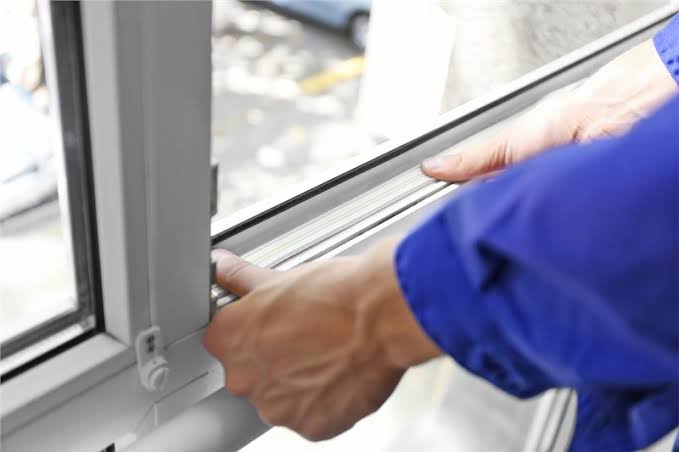Comprehensive Guide to Window Replacement for Homeowners

Window replacement is a significant home improvement project that can enhance a home’s aesthetic appeal and energy efficiency. Whether driven by old, inefficient windows or the desire for a modern upgrade, the process involves several important steps and considerations. We will explore key aspects of window replacement, including understanding when to replace windows, selecting the right type of windows, considering installation options, assessing the benefits of energy-efficient windows, and understanding the financial implications. By thoroughly exploring these areas, homeowners can make informed decisions to improve their home’s functionality and value. If you are looking for a professional, contact Lifetime Exteriors.
Recognizing the Need for Window Replacement
Identifying when old run down windows need to be replaced with more energy efficient windows is crucial for maintaining a home’s integrity and efficiency. Several signs indicate the need for replacement, including noticeable drafts, difficulty opening or closing, condensation between glass panes, and visible damage or decay. Poor insulation can lead to discomfort and increase energy bills. Additionally, windows that no longer provide adequate noise insulation or have become an aesthetic mismatch with recent home renovations might also need replacement to enhance the home’s overall appeal and functionality.
Choosing the Right Type of Windows
Selecting the right type of windows is paramount in the replacement process. Homeowners have a variety of materials to choose from, each with its advantages. Vinyl windows are highly durable and require little maintenance, making them a popular choice for many. Wood windows offer a classic look and can be customized with different stains and paints, but they require more upkeep to prevent decay and weathering. Aluminum windows provide a sleek, modern aesthetic. They are highly resistant to rust and corrosion, though they conduct heat and cold more than other materials, which might only be ideal for some climates. Additionally, the style of the window, such as double-hung, casement, or sliding, can significantly impact the home’s functionality and look.
Installation: Professional vs. DIY
Another critical consideration in window replacement is the decision between professional installation and DIY. While DIY projects can save money, professional installation is recommended for those who lack specific skills or tools. Professional installers bring expertise that ensures the windows are installed securely and sealed correctly to prevent air leaks and operational problems. Moreover, many window manufacturers require professional installation as a warranty condition. Homeowners opting for DIY should be confident in their abilities to handle potential structural challenges and meticulously research the installation process for their specific type of window.
Benefits of Energy-Efficient Windows
Energy-efficient windows offer significant benefits, primarily through lower heating and cooling costs. Windows with double or triple-pane glass, low-E coatings, and inert gas fillings like argon or krypton can dramatically reduce heat transfer between a home’s interior and exterior. This helps maintain a comfortable indoor temperature and reduces the workload on heating and ventilation systems, potentially prolonging their lifespan and decreasing energy bills. Furthermore, energy-efficient windows can help reduce the home’s carbon footprint, an important consideration for environmentally conscious homeowners.
Financial Considerations and Return on Investment
Understanding the financial aspects of window replacement, including costs, potential savings, and return on investment, is essential. The upfront cost of new windows can vary widely based on the materials, styles, and features chosen. However, investing in high-quality, energy-efficient windows can yield substantial long-term savings in energy costs. Additionally, window replacement can increase property value, making it a worthwhile investment for homeowners planning to sell their house. Homeowners should analyze various financing options or rebates for energy-efficient upgrades, which can help offset the initial expense.
Navigating Window Warranties and Aftercare
Understanding and navigating the warranties offered on new windows is vital to the window replacement process. Window warranties vary significantly between manufacturers, covering aspects like glass breakage, frame and sash materials, and hardware. It is crucial for homeowners to carefully read and understand what is included in the warranty and for how long certain components are covered. Additionally, some warranties may only be valid if the windows are installed by certified professionals, which can influence the decision between professional and DIY installation.
Window replacement is a substantial home improvement project that can significantly affect a home’s aesthetics and efficiency. By carefully considering when to replace windows, choosing the right types of windows, deciding between DIY and professional installation, understanding the benefits of energy-efficient windows, and evaluating the financial implications, homeowners can ensure that their window replacement project meets their needs and enhances their home’s value. Proper planning and consideration of these factors will lead to a successful project that enhances comfort, improves functionality, and achieves cost savings over time.



